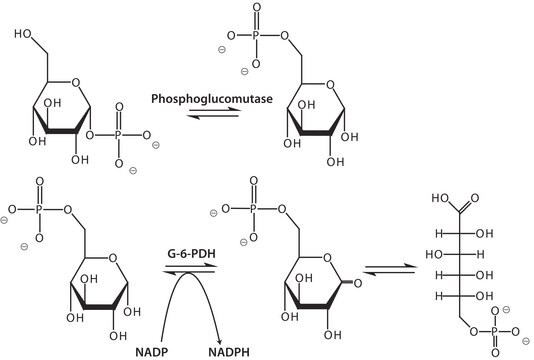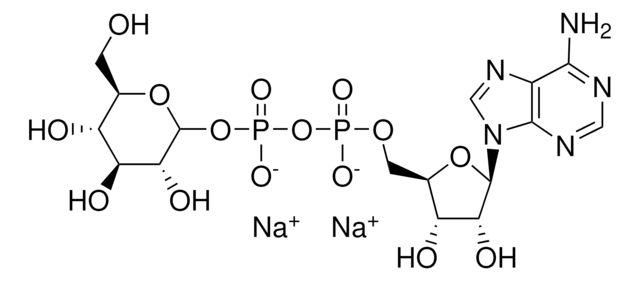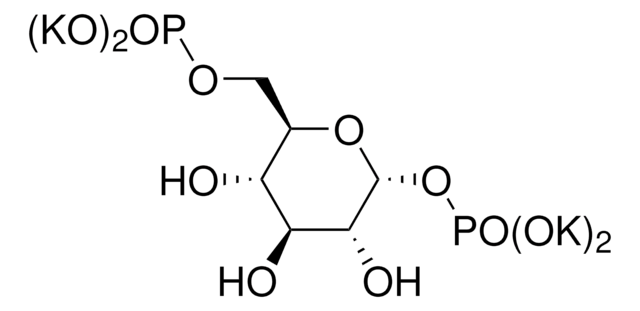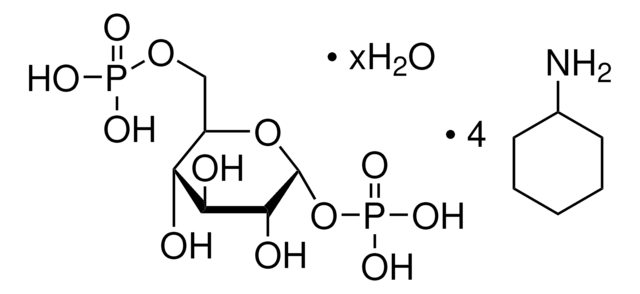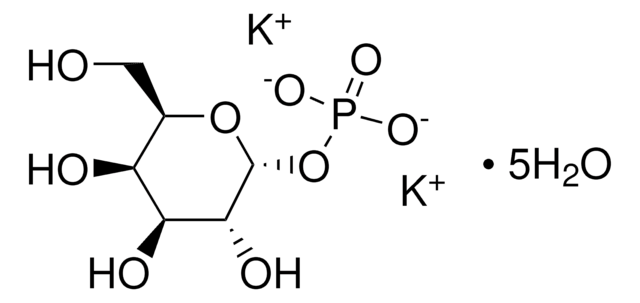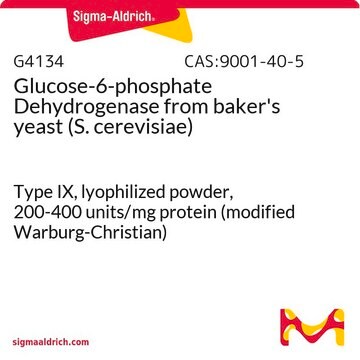SRE0069
Phosphoglucomutase from rabbit muscle
Synonym(s):
α-D-Glucose-1,6-bisphosphatase, α-D-Glucose-1-phosphate phosphotransferase
About This Item
Recommended Products
form
lyophilized powder
Quality Level
specific activity
≥100 units/mg protein
foreign activity
Lactic dehydroenase ≤0.5%
Phosphoglucose Isomerase ≤0.01%
pyruvate kinase ≤0.05%
shipped in
wet ice
storage temp.
−20°C
Looking for similar products? Visit Product Comparison Guide
General description
Application
Biochem/physiol Actions
Unit Definition
Physical form
Storage Class Code
11 - Combustible Solids
WGK
WGK 3
Flash Point(F)
Not applicable
Flash Point(C)
Not applicable
Regulatory Listings
Regulatory Listings are mainly provided for chemical products. Only limited information can be provided here for non-chemical products. No entry means none of the components are listed. It is the user’s obligation to ensure the safe and legal use of the product.
PRTR
Class I Designated Chemical Substances
ISHL Indicated Name
Substances Subject to be Indicated Names
ISHL Notified Names
Substances Subject to be Notified Names
JAN Code
SRE0069-BULK:
SRE0069-VAR:
SRE0069-10KU:
SRE0069-1KU:
Certificates of Analysis (COA)
Search for Certificates of Analysis (COA) by entering the products Lot/Batch Number. Lot and Batch Numbers can be found on a product’s label following the words ‘Lot’ or ‘Batch’.
Already Own This Product?
Find documentation for the products that you have recently purchased in the Document Library.
Customers Also Viewed
Our team of scientists has experience in all areas of research including Life Science, Material Science, Chemical Synthesis, Chromatography, Analytical and many others.
Contact Technical Service